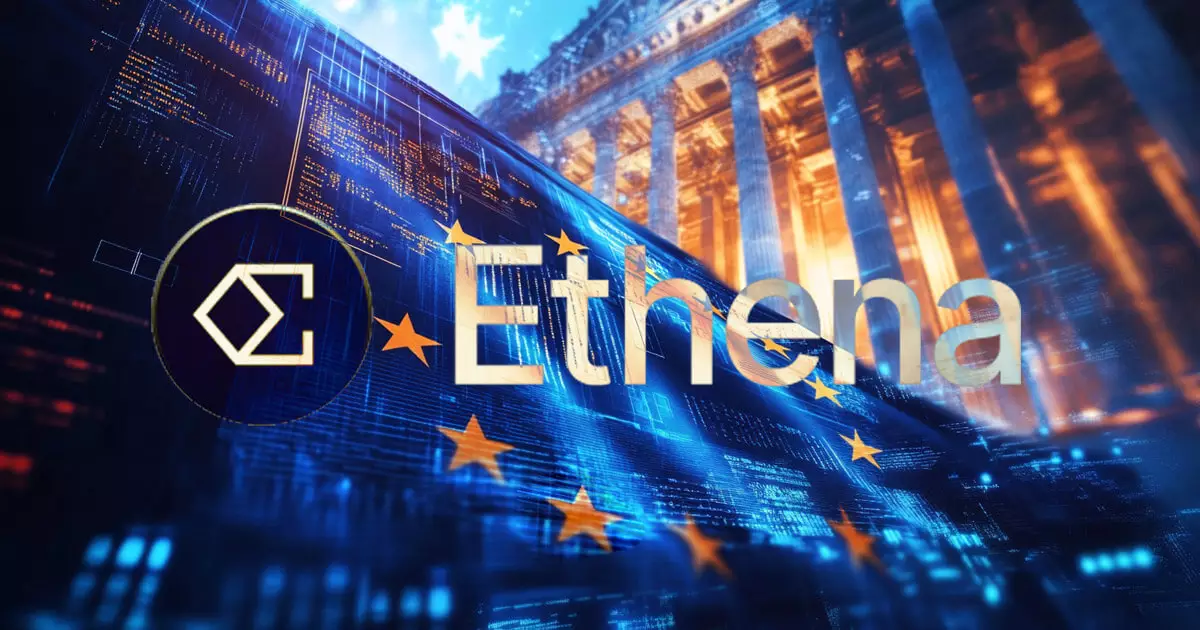Germany’s Federal Financial Supervisory Authority, known as BaFin, recently delivered a devastating blow to Ethena Labs, rejecting the firm’s attempt to issue asset-referenced tokens under the European Union’s Markets in Crypto-Assets Regulation (MiCAR). This decision isn’t just another regulatory action; it acts as a harbinger of challenges increasingly facing cryptocurrency firms within the EU. Unless we confront these realities head-on, innovative efforts in this sector may stagnate under a cloud of compliance bureaucracy, repression, and misunderstanding.
The Rise and Fall of Ethena’s Token Ambition
The core of BaFin’s rejection lies in the agency’s fears surrounding the sUSDe token, which they suspect could represent an unlicensed security offering. Ethena’s application reportedly exhibited “significant deficiencies,” raising red flags about its organizational practices and overall capital adequacy. There’s merit in BaFin’s caution, but this level of scrutiny risks stifling innovation within an already fragile market—especially when it concerns developing instruments that could benefit both users and investors alike. Ethena Labs should have been given a chance to present their case and prove that they could adhere to regulatory guidelines.
Due to the prohibition imposed by BaFin on further public offerings of the USDe token and the freezing of reserve assets, the challenges have only multiplied for Ethena, one among many stablecoin issuers grappling with compliance issues. The incident is emblematic of a larger systemic problem: regulators moving the goalposts while innovators scramble to keep up. To add a further layer of complexity, there remains the question of market compliance for other tokens like Tether USD (USDT), which has seen its own struggle for legitimacy.
Regulatory Overreach: The Thin Line Between Protection and Control
BaFin’s immediate actions extend beyond just the administrative; they symbolize a concerted effort to reign in an industry that some regulators perceive as chaotic and under-regulated. The agency has not hesitated to implement enforceable supervisory measures with a level of severity that could be construed as overreach. In doing so, they are not simply closing the door on Ethena but potentially creating an environment where even compliant firms become wary of overexposing themselves to regulatory scrutiny.
The notion that a stablecoin like sUSDe could be classified as a security hinges upon its structural design and the potential guarantee of returns. It brings forth critical questions about hybrid tokens, which combine both reserve and yield-generating mechanisms, and whether they deserve the same treatment as securities traditionally offered in more conventional financial markets. Stifling the development of innovative financial instruments by classifying them as securities under a rigid framework only hinders the potential benefits that they could provide.
The European Union’s Complex Dance with Crypto
The regulatory climate in the European Union is undergoing tectonic shifts, as demonstrated by BaFin’s attention to detail. Ethena’s case sets a troubling precedent for other crypto firms seeking to navigate through a regulatory maze that is fast becoming disjointed. With 5.4 billion USDe tokens already in circulation, the question becomes whether new rules can adapt to established practices without undue disruption. It’s a casino-like gamble—while some innovative tokens might be shut down, others could spring forth, leading to uncertainty across the field.
When examining the practical implications of these decisions, one must wonder if innovation can survive under the weight of such strict regulations. Dome shadows of uncertainty loom large over the industry, where firms might now consider abandoning Europe as a launchpad for innovative products, ultimately leading to brain drain towards more crypto-friendly jurisdictions.
Ethena’s Response: A Hopeful But Hesitant Path Forward
Following BaFin’s decision, Ethena Labs publicly stated that it is now “evaluating alternative frameworks” for regulatory compliance. This kind of response indicates adaptability—an essential trait for survival in the volatile crypto space—but brings forth its own set of challenges. Ethena’s ability to operate through its British Virgin Islands affiliate still provides a glimmer of hope but underscores the need for clearer and less punitive structures within the EU.
With the dynamic nature of cryptocurrency and the general public’s shifting perspective on regulations, it’s crucial for both companies and regulatory bodies to engage in a more collaborative dialogue. As crypto becomes more mainstream, continued disregard for innovation may yield diminishing returns for regulators and could pave the way for a wider chasm between traditional finance and digital currency solutions.
BaFin’s rejection of Ethena Labs may be seen as a necessary regulatory action, but it stands as one more hurdle in an increasingly complex world where innovation could easily be suppressed in the name of compliance. How this will unfold in the future remains to be seen, but for now, the stakes have been irrevocably raised.















